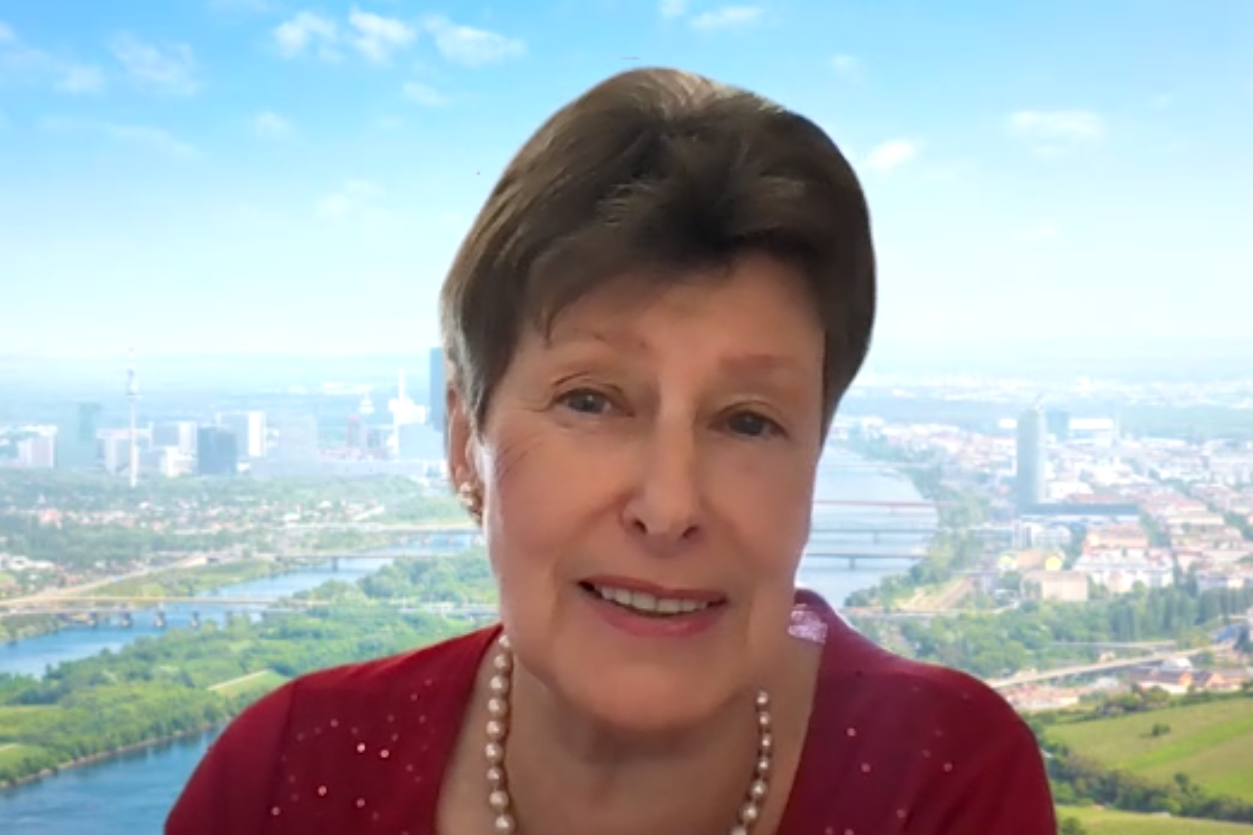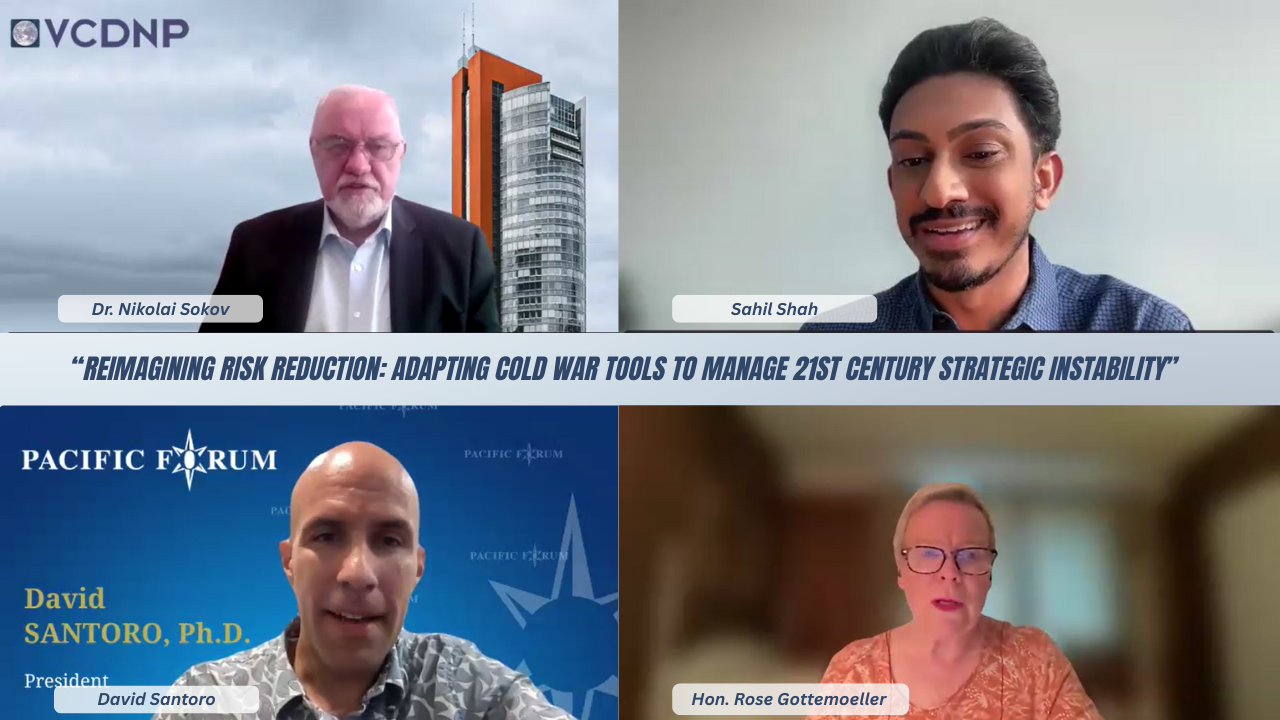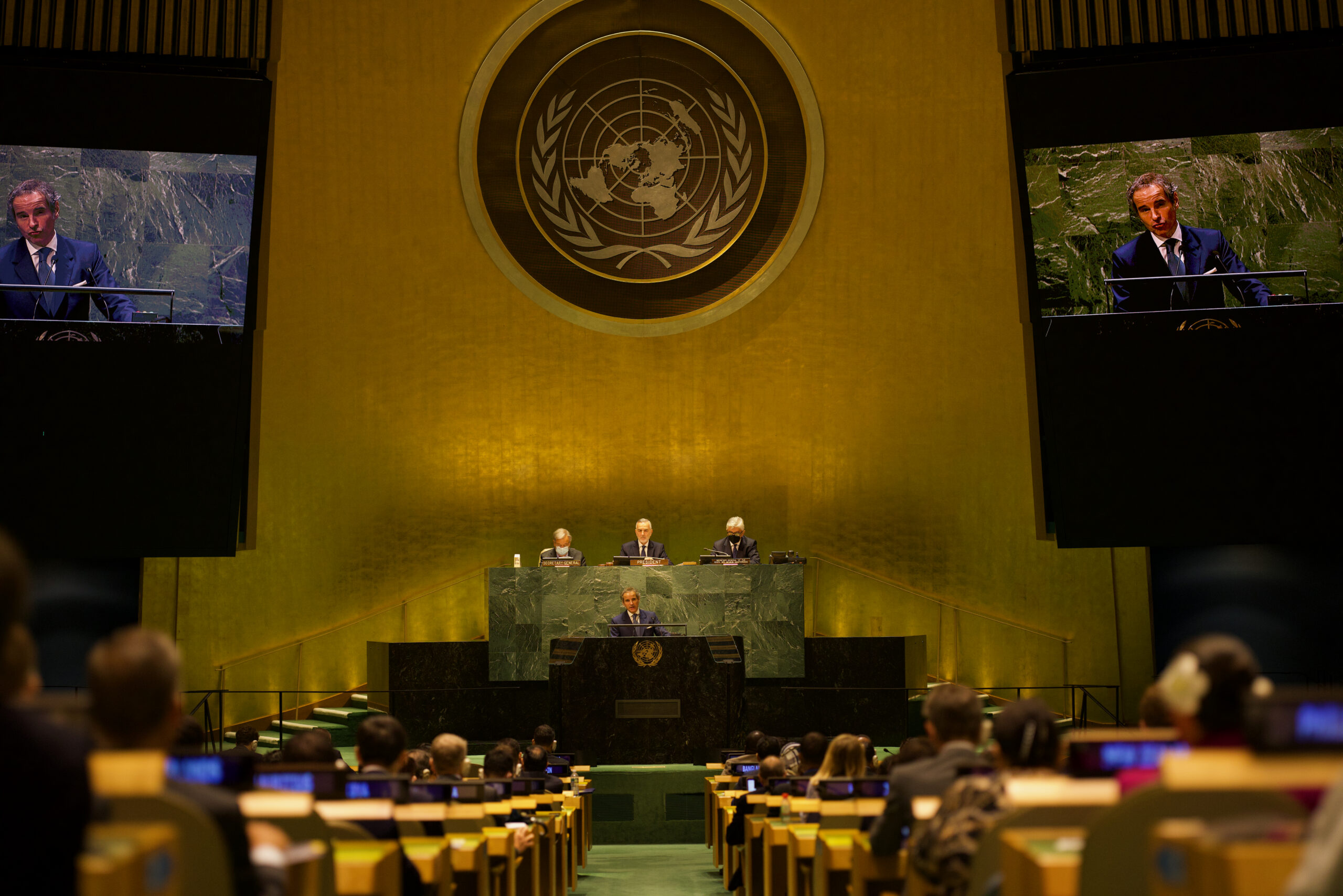
What is the future of the arms control architecture that has provided some stability in the years of the Cold War and its aftermath? What are the prospects for new negotiations to account for, reduce and eliminate US and Russian nuclear weapons? What is the likelihood of other nuclear-weapon states to join the negotiations? What implications will this have on the upcoming Review Conference of the Treaty on the Non-Proliferation of Nuclear Weapons (NPT)?
VCDNP Senior Fellow Angela Kane addressed these questions during a hearing of the United Kingdom's House of Lords All-Party Parliamentary Groups on Global Security and Non-Proliferation, as well as the group on the United Nations.
First, Ms. Kane advocated that the United States and the Russian Federation extend the New START Treaty before it is allowed to expire in February 2021. If New START expires, the confidence building measures that it provides will also disappear, including mutual verification, military-to-military contact, risk reduction measures and transparency measures. This is a safety net that would be dangerous to lose.
Ms. Kane observed that this is a symptom of a larger problem in the international system - the decline in multilateralism. She observed that structures that once guaranteed a multilateral approach to global problems no longer hold and, as a result, we face a return to high military expenditures on nuclear programs and the threat of a new arms race.
Talks between US and Russian government representatives that took place in Vienna starting from June offer hope for detente, according to Ms. Kane, but even these talks are subject to differing interpretations from the US and Russian sides. Until more progress in made in this regard, Ms. Kane offered a number of recommendations to maintain stability, including:
In closing, Ms. Kane posed a question to the participants: what is the vision for arms control? How do states want to approach this issue in the future? Rather than always focusing on the precedent from the past, what might states want to build in the next 50 years?
Ms. Kane's full remarks are available below.


